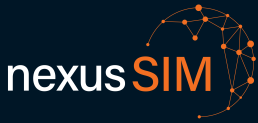What does your data know that you don't?
Who studies religion? This question is surprisingly hard to answer. A brief glance at the literature reveals medical researchers, sociologists, neuroscientists, historians, and many others involved in investigating different aspects of “religion” or “spirituality.” But what do these different approaches have in common (if anything)? To reveal the underlying structure of research in specific fields, an empirical approach that goes beyond overt disciplinary boundaries can provide clarity to these complex pictures.
The Social Consequences of Religion (SCORE) project was conducted in partnership with the Center for Mind and Culture and funded by the Templeton Religion Trust. The CMAC team compiled a clean database including information about co-authorship, publication venues, institutional homes and funding sources. From there, our developers transformed this massive dataset into a detailed mapping of the research communities who study human religion and biological cooperation. This granular mapping of academic fields reveals deeper trends in scholarship, such as their historical evolution, the topics of greatest interest at present, and even where the field is headed.

As an organization with deep ties to the scientific study of religion, we expected themes of community, understanding, and research to emerge from our analysis of publications on religion and cooperation. Only by employing powerful data science tools, like bibliometric analysis and machine learning, were we able to surface patterns, networks, and themes to help determine where the big outstanding questions, opportunities, misunderstandings, and research needs lie within the field.
The data is there, but do you have the tools to wrangle it? nexusSIM helps public-interest researchers achieve their goals by transforming data and ideas into impactful contributions using high-tech tools.
SCORE is an example of the cutting-edge tools we can tap into to uncover powerful patterns in your data. Each project with us is highly customizable so you get the most out of the tools we have available. The engineering costs for SCORE were less than $10,000, though additional work may be needed for your data preparation.
Contact us to start the conversation about building a bibliometric analysis.
